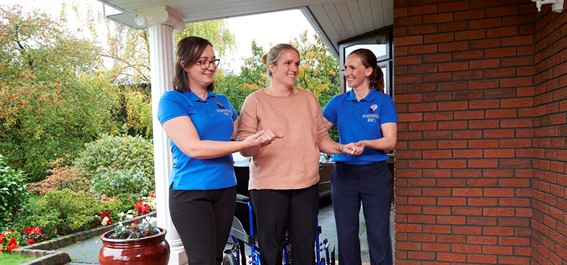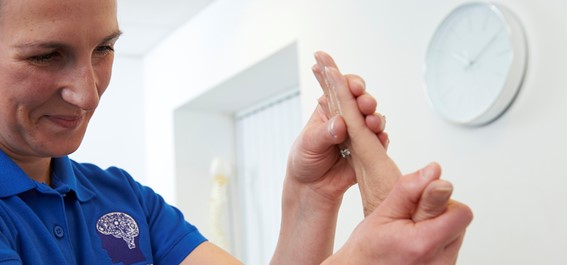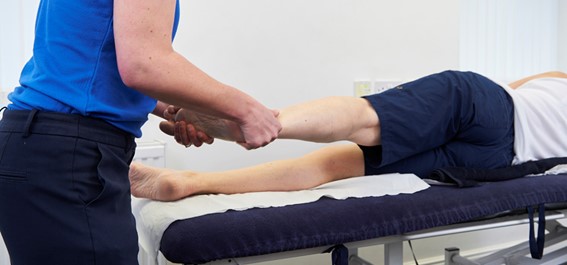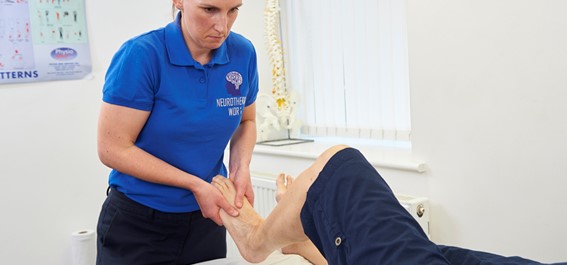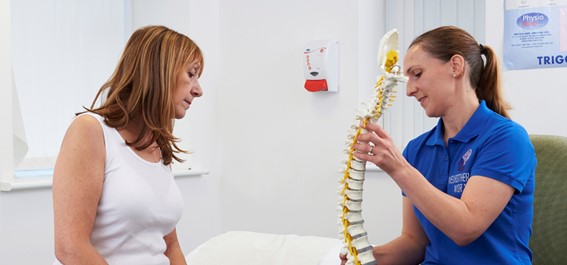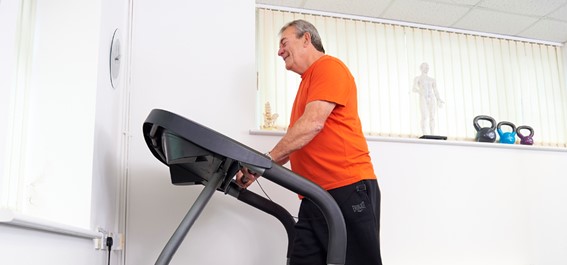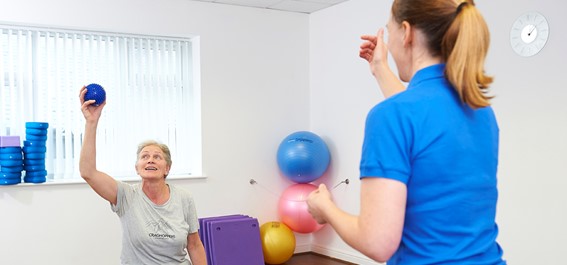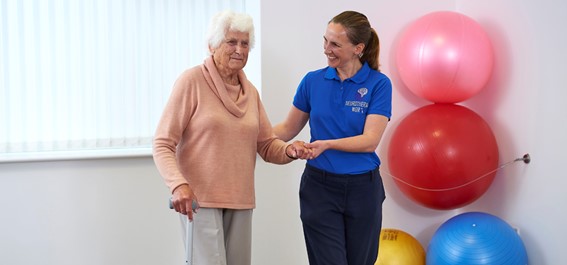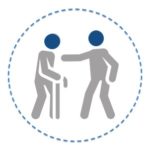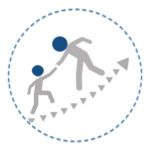

Stroke
What is a stroke?
A stroke occurs when part of the blood supply to the brain is cut off. This causes damage and death to some brain cells which can affect how the body works physically. It can also change how you think and feel.
There are different types of stroke:
- Transient ischaemic attack (TIA)- Also known as a ‘mini stroke’. It presents like a stroke but the effects only last for a limited time. This is because the blockage is only temporary.
- Ischaemic- caused by a blockage cutting off the blood supply to the brain. This is the most common type of stroke
- Haemorrhagic- Caused by a bleed within (Intracerebral) or on the surface (Subarachnoid) of the brain. The bleed happens when an artery bursts.
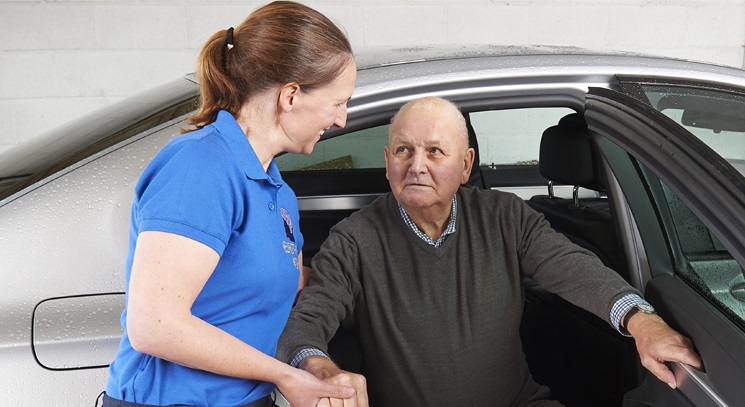

You may experience the following symptoms:
- Weakness on one or both sides of your body
- Reduced ability to walk
- Balance problems
- Muscle spasms (Spasticity)
- Fatigue
- Sensory problems such as numbness, pins and needles
- Neglect on the effected side
- Pain or hypersensitivity
- Communication/swallowing problems
- Reduced ability to complete general day to day tasks due to physical and/or cognitive problems
How our Physiotherapy helps with Stroke
The effects of a stroke can be life changing. Although damage to the area of the brain affected is permanent, there are ways to help influence recovery so that your quality of life can improve. At Neurotherapy Worx we can help in a number of ways:
- Specific ‘hands on’ neurological physiotherapy to help improve your active movement patterns, mobility and function
- Gait re-education
- Balance re-education
- Assessment and provision of aids to help improve independence around the home
- Provision of a positioning and/or stretching plan to help maintain range of movement at muscles and joints
- Referral to a consultant for ongoing spasticity management where needed
- Provision of home exercise plans or gym programmes
- Assessment and provision of functional electrical stimulation (FES)
- Education and teaching for your family and carers on how to help you
- Aquatic therapy (Hydrotherapy) to help improve your movement, strength, mobility and balance
- Referral to relevant and local services such as wheelchair services, orthotist (splinting/supports), sensory impairment team, driving assessment services
- Virtual reality based therapies that can be used for exercise and rehabilitation.

How Does Neurotherapy Treatment Work?

We hold a brief conversation with you about what problems you struggle with and how you need help
We capture your personal details, discuss the costs and timings and arrange an appointment
During your first appointment, you share your goals with us and we conduct a physical assessment
We work with you to build a personalised treatment plan, during a scheduled period of intervention
We may prescribe some exercises to help you to address weakness, move more efficiently and improve your quality of life
We regularly review your progress and adjust your goals as you make improvements
What’s a Treatment Plan?
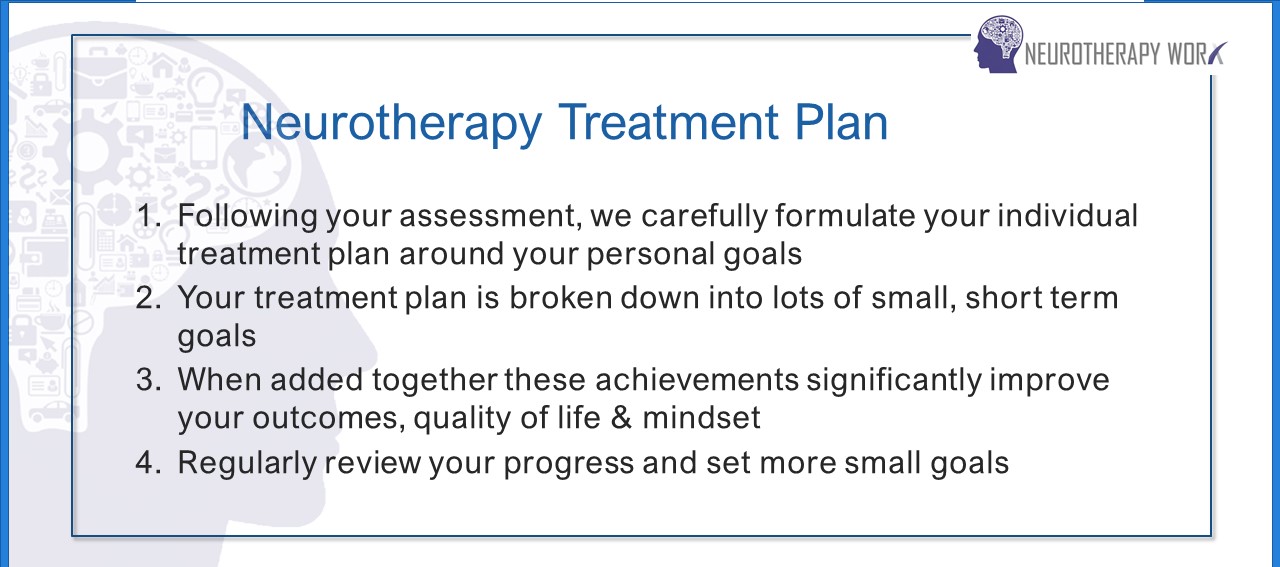
Why Work With Our Team?
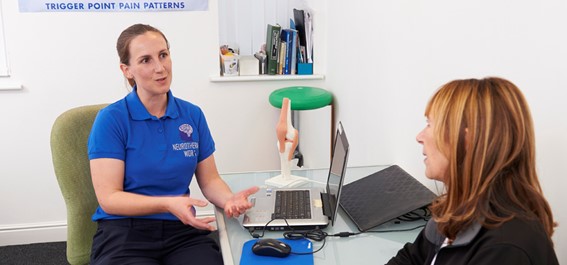
Patient Centric
Motivational, personalised and tailored care, based on your individual goals and fully adapted to your abilities
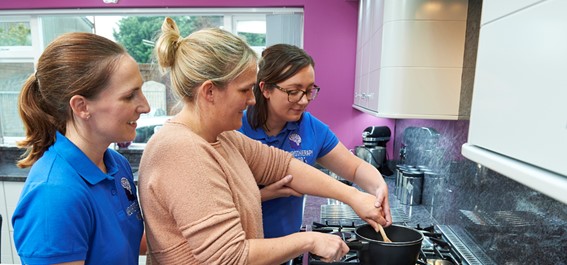
Multi Skilled Team
Our expert team work together when required, fully communicating to deliver the fastest and best outcomes

Fully Experienced
With extensive, hands on practical career experience of working in hospitals, clinics and the community
Why Trust Us for Your Treatment?

Qualified Specialists
Fully HCPC, CSP, Physio First, CPD, DBS accredited with proof of up date memberships upon request. We’re member of the aquatic therapy association of chartered physiotherapists (ATACP) and association of paediatric chartered physiotherapists (APCP) and association of chartered physiotherapists in neurology (ACPIN).
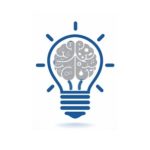
Innovative Therapies
By staying ahead of cutting edge industry treatments, we bring you new and unique support and options. We believe in staying ahead of technical advances within our industry to deliver the best levels of care. We research and use the latest medical devices to support our neurological therapies. See our therapies pages for more information.

Trust Us with your Data
We’ve invested in the latest, GDPR compliant IT systems for accurate patient record keeping. Our systems match the stringent data protection standards within the healthcare industry, enabling us to communicate fluidly with your other care providers and deliver collaborative care.
Home Visits
Our friendly team visit you in your home. Following our assessment, we support you with activities of daily living that you would like to carry out more easily. Our team are enhanced police checked.
Attend Our Clinic
Attend our fully equipped clinic for a full assessment & tailored treatment plan. Specialist equipment is available to support your activities & develop your skills, enabling you to achieve your personal goals
Neurological Problems We Help With
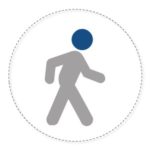
Walking Issues
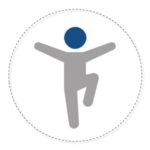
Balance Problems
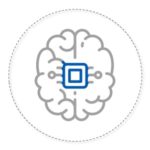
Coordination Problems

Visiospatial Disfunction
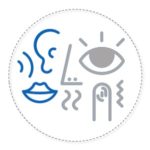
Sensory Loss
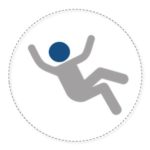
Falls
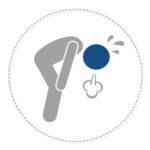
Fatigue
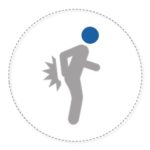
Pain

Spasticity
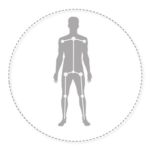
Body Alignment

Range of Movement

Reduced Muscle Tone
Neurological Conditions We Support
• Alzheimer’s Disease
• Balance Problems
• Brain Injury
• Brain Tumours
• Cerebral Palsy
• Dementia
• Functional Neurological Disorder
• Guillain-Barré Syndrome
• Hereditary Ataxias
• Motor Neurone Disease
• Multiple Sclerosis
• Muscular Dystrophy
• Parkinson’s Disease
• Peripheral Neuropathy
• Spinal Deformity and Injury
• Stroke





